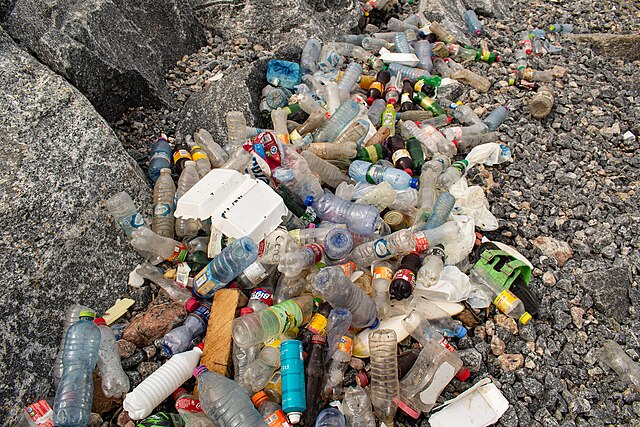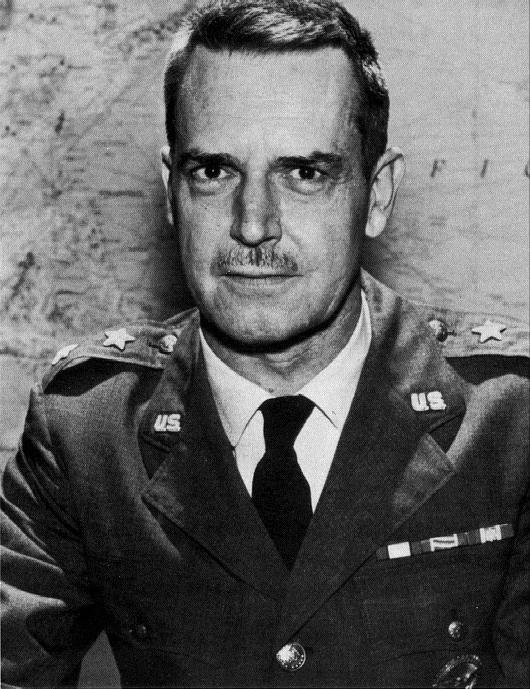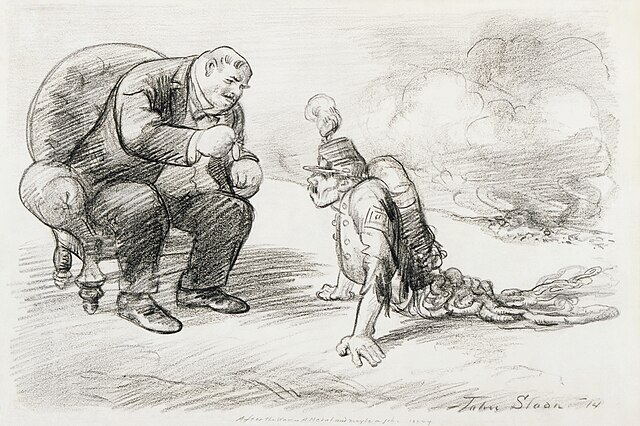
Nicole Foy joins us to discuss her recent reporting at ProPublica, including "We Found More Than 40 Cases of Immigration Agents Using Banned Chokeholds and Other Moves That Can Cut Off Breathing." "The Moment of Truth" with Jeff Dorchen follows the interview.
Help keep This Is Hell! completely listener supported and access bonus episodes by subscribing to our Patreon.
Please rate and review This Is Hell! wherever you get your podcasts. It really helps the show ascend the algorithm to reach new listeners.
Welcome to the Moment of Truth: the thirst that is the drink.
What makes great masses of people believe the same stupid, or magical, or xenophobic, or elitist narrative? What made Emperor Constantine decriminalize Christianity and eventually elevate it to the state religion of the Roman Empire? And what made people go along with that? What made people agree on currency? What makes people agree on crypto-currency? What makes so many people agree on the greatness of certain art? Or certain food?
Well, certain food is objectively delicious, but still...
At the root of this question might be, “how do people come to believe strongly, vehemently, even violently, opinions having no other value than the value the believers assign to them?”
Then again, what other value do opinions have? Well, a medically trained doctor’s opinion of why, say, you aren’t capable of speaking above a whisper, might have more value to you than that of someone who’s just tossing out guesses, because of the training and expertise of the one, compared with the lack of them of the other.
But you might not like the doctor’s opinion, because it has implications that require you to have polyps removed from your vocal chords, whereas the know-nothing opinion might only require you to eat chicken soup or suck on a slippery elm lozenge.
So, still, although you have your reasons, no specific property of the opinions other than your own judgment would make you choose one or the other. The medical one may be correct, or better reflect your physical condition, but you could still ignore it indefinitely if you were attached to the other opinion for some cowardly or superstitious reason.
I recently learned a little about the Saint Francis dam disaster, a fiasco made possible by the water wars of the late 1920s and 1930s, which Robert Towne and Roman Polanski used as a McGuffin to build their Chinatown on. The details would be better told as one of Renaldo’s Rotten Histories than by me. He may have already done so, I don’t know because there’s no way to search for just the Rotten Histories – I’m not trying to create more work for the archivists, I’m just saying: I’ll just be giving you the broad, choppy strokes.
Bureau of Water Works manager and chief engineer, William Mulholland, who would go on to have a drive through the Hollywood Hills named after him, wanted to be a big hero... read more
Welcome to the Moment of Truth: the thirst that is the drink.
Earlier in the year, Chuck read a communication from a listener who seemed to wonder, since any action one takes, with whatever intention, gets coopted by the capitalist machine that contributes to destroying people’s lives, and no one, without exception, has yet been able to escape from the snare, wouldn’t it be better just to remove oneself from the Earth, in order to at least minimize one’s bad impacts on the planet, and cease the process of feeding the system with well-intentioned efforts, all of which eventually arrive at negative outcomes?
I mean, if this really is Hell, why should we continue to stay here?
I hope that listener has resolved this issue to their satisfaction. Nevertheless, should anyone else be positing similar questions about the value of carrying on, here are a few things to consider. And believe me, I need to take this mental journey as much as anyone.
In the simplest terms, if this really is Hell, then the option to leave is a red herring, and you’d probably end up somewhere even worse, or at best back where you started. And if you survive a suicide attempt (I’m assuming I’ve been coyly discussing suicide here, though I don’t really know myself that well) you will be stigmatized and possibly lose what little freedom you have. And being trapped in a mental hospital, at the mercy of a system that’s currently discussing bringing back electroshock and lobotomies, is worse than what you might be wishing to escape from.
I assume everyone agrees that it’s possible to do a modest amount of good to improve the lives of others in a small way, every day. Someone is in pain right now, and you can relieve that pain. That alone, whatever the unintended consequences down the line, is worth the price of admission.
Don’t beat yourself up for your inability to escape the moral convolutions of human existence. I mean, if you think about it, it’s an egotistical point of view. Who do you think you are, Supergirl? Jesus? Buddha? Jimmy Carter? Florence Nightingale? Leonora Carrington? Esther Freud? Esther, daughter of Mordechai? Joan of Arc? Edith Piaf? Zora Neale Hurston? All of them with human flaws, some with pretty lousy ones. Ask James Baldwin about Zora Neale Hurston some time, if you ever get reincarnated into the past, which is likely.
What I’m trying to say is, it is... read more



